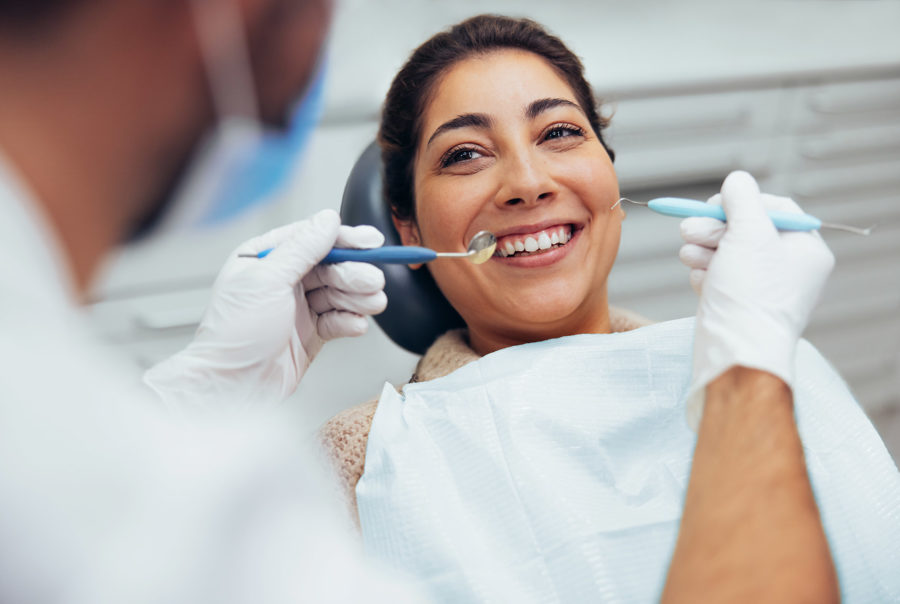Safe Removal of Plaque Without Damaging Protective Enamel
It is a natural occurrence that plaque and tartar build-up on the surfaces of our teeth over time. While natural flora made up of healthy bacteria are used to break down food and prepare it for digestion, harmful bacteria tend to grow and multiply with refined sugars in our diet, leading to the formation of harmful plaque. Plague (the film we feel on our teeth if we haven’t brushed) can harden and calcify, resulting in tartar buildup.
Tartar is too hard for either your toothbrush or mouthwash to effectively remove. Your dental hygienist is trained in the safe removal of plaque without damaging the protective enamel on your teeth. Tartar can build up along the gumline, resulting in inflammation and redness of the gums and the potential for tooth decay. Gum disease (periodontal disease) results in the loss of more teeth than cavities in people over age 35. Gum disease has also been noted in the scientific community to increase the risk of heart disease, diabetes, dementia, and other ailments.



The Dental Examination
Did you know that a healthy mouth offers more than just a beautiful smile? Your dentist uses the information gathered during your examination to offer a window into your systemic health.
Your dentist will begin by collecting information about your current health and lifestyle habits. A review of your medical history, including current medications, gives your dentist a holistic view of your overall wellness and any current health and dental concerns. Some conditions or medications may impact the future success of dental procedures, so it’s important to provide your dentist with complete and accurate information. Once your dental health is fully examined, your dentist will share their findings. You and your dentist will discuss the available corrective actions where concerns exist.
Visual Examination
Performed by your dentist, who may use tools to determine the condition of your teeth, the condition of your existing restorations (such as white or amalgam fillings, crowns or implants), and any signs of decay. Your dentist will also check the bone and muscular tissue in the jaw to identify concerns such as signs of nighttime clenching or poor bite alignment.
Cancer Screening Your dentist will screen for signs of cancer both inside and outside the mouth, including lymph nodes, throat and lip/tongue tissue, and roof and floor of the mouth.


Radiographic Imagery
Your dentist uses radiographic X-rays to provide valuable information about the condition of your teeth below the surface (or anywhere not visible by visual examination). The X-ray allows your dentist to assess the health of the root systems and positioning of your teeth, hidden signs of decay, bone loss or underlying concerns such as cysts or infection.
We’ll give you a reason to smile
We’re accepting new patients and look forward to serving you, so please give us a call or request an appointment online; see you soon!
